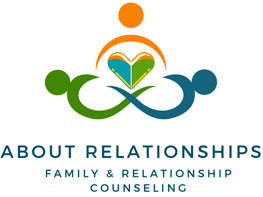Finding Balance in Practicing Gratitude
Gratitude is often seen as a simple, feel-good practice—something we turn to during holidays or when life feels easy. But what if gratitude could be more than a fleeting sentiment? What if it could anchor us in times of uncertainty and help us find balance when the world feels out of control?
Today, many of us are grappling with profound challenges. Civil unrest, polarized relationships, economic struggles, and the weight of collective anxiety make it hard to feel thankful. Yet, in these very moments, practicing gratitude can be transformative—not because it erases hardship, but because it allows us to reframe our perspective and hold onto hope. Gratitude isn’t about ignoring pain; it’s about intentionally seeking light in the darkness.
Understanding Gratitude as a Discipline
Gratitude is more than listing things you’re thankful for—it’s a disciplined practice of looking for meaning and connection. Research shows that regularly practicing gratitude can rewire the brain, increasing emotional resilience and improving relationships.
But this practice isn’t always easy. It requires us to pause, reflect, and sometimes dig deep to find even the smallest glimmer of positivity. Gratitude doesn’t deny the struggles we face; it invites us to hold those struggles alongside moments of joy, connection, or growth.
Practical Strategies for Cultivating Gratitude
If gratitude doesn’t come naturally, don’t worry—it’s a skill you can nurture. Here are some practical ways to begin:
1. Daily Gratitude Journaling
Start or end your day by writing down three things you’re grateful for. They don’t have to be grand—perhaps it’s the warmth of your morning coffee, a kind word from a friend, or a moment of peace during a hectic day. Using prompts like “What made me smile today?” can help you focus.
2. Gratitude in Relationships
Gratitude isn’t just about individual reflection—it thrives in connection. Make a habit of sharing affirmations and appreciations with loved ones, even when tensions arise. Consider creating a family gratitude jar where everyone writes notes about positive experiences or qualities in others to read together during difficult times.
3. Mindful Moments
Pause during your day to notice what’s going well. Maybe it’s the sound of birds outside or the way sunlight streams through your window. Mindfulness and gratitude go hand in hand, helping us savor the present.
4. Gratitude Letters
Write a letter to someone who has impacted your life positively. Even if you don’t send it, the act of writing can help you reconnect with feelings of appreciation.
Addressing Challenges to Gratitude
Economic Hardships
Financial stress can make gratitude feel out of reach. Begin by validating your own feelings of frustration or worry. Then, try to focus on small victories—like paying a bill, sharing resources with a friend, or moments of generosity from others. Gratitude doesn’t diminish your struggle but highlights your resilience.
Polarization in Relationships
Families and relationships can feel strained by conflicting perspectives. When emotions run high, it’s easy to lose sight of shared values. Gratitude here might look like appreciating a partner’s dedication to family, even if you disagree politically, or acknowledging the effort a loved one makes to stay connected.
Civil Unrest and Collective Anxiety
In times of societal unrest, gratitude can feel counterintuitive. But it’s often in these moments that we can see acts of kindness and solidarity most clearly. Reflect on the strength of communities coming together or the courage of those advocating for change. Gratitude doesn’t mean ignoring injustice—it means finding hope and connection amid the struggle.
Meeting Yourself with Empathy
Practicing gratitude doesn’t mean you have to feel thankful every moment. It’s okay to struggle, to grieve, or to feel tired. Meeting yourself with empathy means acknowledging that it’s normal to find this practice hard, especially during difficult times.
One way to cultivate self-compassion is to speak to yourself the way you would a friend. Instead of criticizing yourself for not “being grateful enough,” remind yourself of your resilience and your efforts to show up for life, no matter how messy it gets.
A Gratitude Challenge
To help you put these ideas into practice, here’s a simple 7-day gratitude challenge:
● Day 1: Write down one thing you’re grateful for.
● Day 2: Share your gratitude with someone else—send a text, write a note, or say it aloud.
● Day 3: Reflect on a past challenge and identify something you learned or gained from the experience.
● Day 4: Notice something beautiful in your environment and take a moment to savor it.
● Day 5: Write a gratitude letter (even if you don’t send it).
● Day 6: Take a moment to appreciate your own strengths or qualities.
● Day 7: Look for an opportunity to express gratitude for something or someone unexpected.
In times of chaos, gratitude may feel like a luxury—but it’s actually a lifeline. By intentionally practicing gratitude, we reconnect with the good in our lives and the people around us. It doesn’t erase hardship, but it helps us find balance, hope, and strength to keep moving forward.
What will you choose to be grateful for today?
